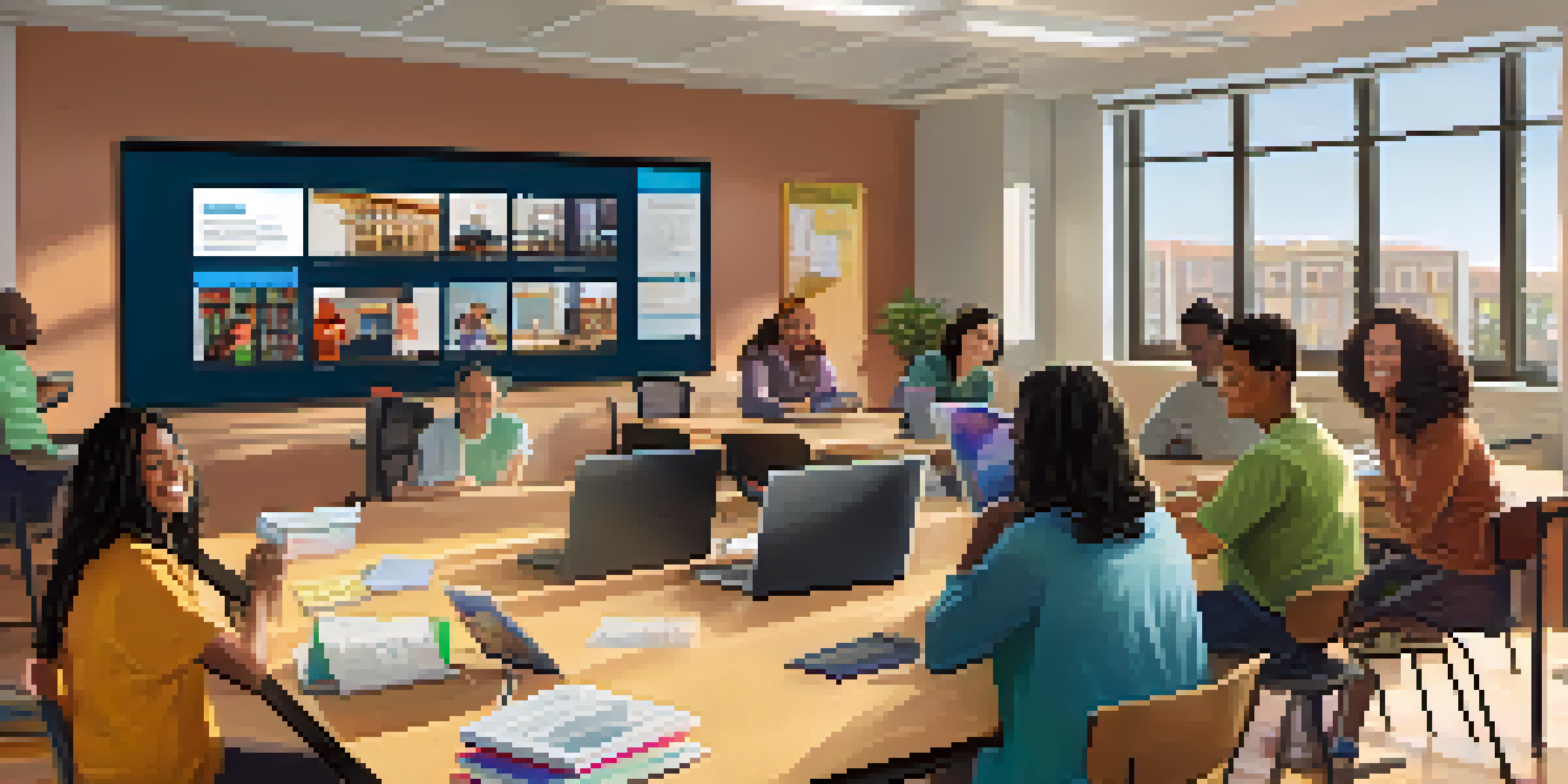Mentorship in Digital Learning: Educators Supporting Peers

Understanding Mentorship in Digital Learning
Mentorship in digital learning involves educators guiding their peers to enhance teaching practices. It's a collaborative approach that fosters growth and innovation in the digital space. By sharing experiences and resources, mentors help their colleagues navigate the challenges of online education effectively.
The Benefits of Peer Mentorship
Peer mentorship creates a supportive environment where educators can learn from one another. This approach boosts confidence and encourages experimentation with new teaching methods. Additionally, it helps build a sense of community, which is crucial in the often-isolated world of digital learning.
Mentorship Enhances Digital Learning
Educators guiding one another fosters growth and innovation in online education.
Establishing a Mentorship Program
Creating a structured mentorship program can lead to more effective collaboration among educators. Start by identifying experienced educators willing to share their knowledge and match them with those seeking guidance. This foundation sets the stage for meaningful interactions, fostering a culture of continuous improvement.
Effective Communication in Mentorship
Open and honest communication is key in any mentorship relationship. Both mentors and mentees should feel comfortable sharing challenges and successes. Regular check-ins can help maintain this dialogue, ensuring that both parties are aligned and can adjust their strategies as needed.
Communication is Key in Mentorship
Open dialogue between mentors and mentees helps maintain alignment and supports effective collaboration.
Leveraging Technology for Mentorship
Technology plays a pivotal role in facilitating mentorship in digital learning. Tools like video conferencing and collaborative platforms allow for seamless interactions, even when educators are miles apart. By embracing these technologies, mentors can provide timely support and resources, enhancing the learning experience.
Measuring the Impact of Mentorship
To understand the effectiveness of mentorship programs, it's essential to measure their impact. Surveys and feedback from participants can provide valuable insights into the program's strengths and areas for improvement. This data-driven approach not only enhances the mentorship experience but also showcases its value to the institution.
Technology Facilitates Mentorship
Digital tools enable seamless interactions, making mentorship accessible regardless of distance.
Overcoming Challenges in Mentorship
While mentorship offers many benefits, it can come with challenges such as time constraints and differing expectations. It's important for both mentors and mentees to set clear goals from the outset and remain flexible. Addressing these challenges openly can lead to a more productive and fulfilling mentorship experience.
The Future of Mentorship in Digital Education
As digital education continues to evolve, so too will the role of mentorship. Embracing new trends and technologies will allow educators to remain relevant and effective. By fostering a culture of mentorship, institutions can ensure that their educators are well-equipped to meet the challenges of the digital learning landscape.
Peer Mentorship Enhances Learning
Educators collaborating through peer mentorship fosters a supportive environment, boosting confidence and innovation in teaching practices.